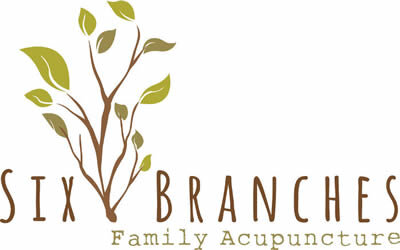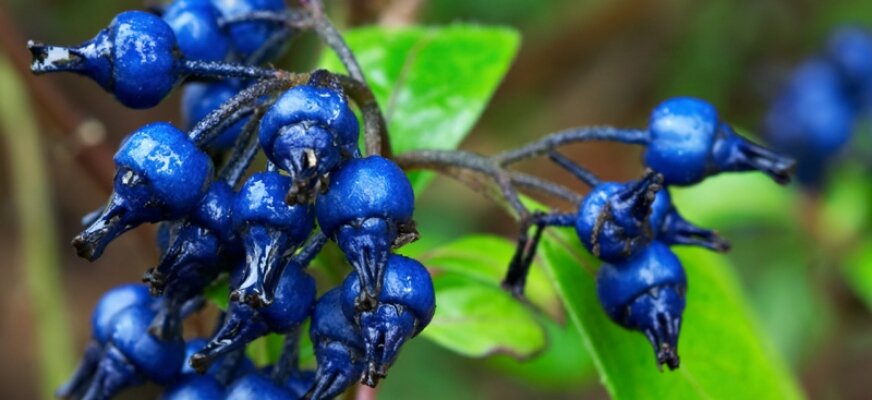We all know the difference between an apple and a lump of white sugar right? A whole apple has sugar but it also comes with vitamins, fiber, and water that our bodies can use together with the sugar to fuel our bodies. Refined sugar, on the other hand, may originally come from a plant, but it's so concentrated that it's practically toxic in large quantities, and at the very least comes with a number of side effects. An apple a day keeps the doctor away - refined sugar... not so much. On to Chinese Herbal Medicine...
Chinese herbalists have been using bark, roots, seeds, and flowers to treat serious medical conditions for over 2,000 years. Within one single herb, there are often many compounds that contribute to its therapeutic properties. From early in their use, Chinese herbs have been combined into formulas where the properties of the herbs complement each other, and one herb might lessen the harsher effects of another herb. Herbs are rarely given alone, or for one single symptom. As with all of TCM, herbal formulas are given to address both symptoms and root causes of a disease. Taken in the right combinations and quantities, they can be helpful for a certain condition with minimal side effects, like eating an apple as a part of a healthy diet that includes vegetables as well.
In modern times, pharmaceutical companies have made big money by isolating certain compounds from plants and replicating them synthetically. Aspirin is probably the most widely-known example of a modern pharmaceutical with origins in the plant world. Salicylic acid, the active component of aspirin, originally comes from the bark of the Willow tree. Aspirin is a pretty benign example, because there are relatively few side effects, but it is still the concentrated, refined sugar version of the willow bark.
It is within this context that I want to highlight a new study from Harvard School of Dental Medicine that has isolated molecular properties in the Chinese herb Chang Shan, an herb that TCM uses to treat malaria. Chang Shan is a plant in the hydrangea family that grows in Tibet and Nepal. HSDM reports that: "Recent studies suggest that halofuginone (HF), a compound derived from this extract's bioactive ingredient, could be used to treat many autoimmune disorders ... [by blocking] the development of a harmful class of immune cells." That harmful class of cells is implicated in many autoimmune diseases such as inflammatory bowel disease, rheumatoid arthritis, multiple sclerosis and psoriasis. The researchers found that minute doses of HF reduced multiple sclerosis in a mouse model.
“HF prevents the autoimmune response without dampening immunity altogether,” saidMalcolm Whitman, a professor of developmental biology at Harvard School of Dental Medicine and senior author on the new study. “This compound could inspire novel therapeutic approaches to a variety of autoimmune disorders.
”Yay! I'm excited about these kinds of developments, both for people who suffer from auto-immune disorders and because it's great to have some modern understanding of the medicine we're practicing. I'm not against the use of pharmaceuticals - indeed Western medicine has brought us great advances - but I will tell you that in my practice I've also seen many of the side effects of Western pharmaceuticals on my patients' health. While I welcome this news, I am also a bit wary about a pharmaceutical concentration of this isolated compound, and the as-yet-unknown side effects that its long-term use might have. Chinese Herbal Medicine is a safe and effective means of treating many disorders, and the safe-guards are built in - developed over thousands of years of practice!
[Photo Credit: UBC Botanical Garden]
Editor's Update: Here's some news about the pharmaceutical study of an entire formula, not an isolated compound, for use in the treatment of cancer. The Wall Street Journal reports that Huang Qin Tang "has been shown in early trials to be effective at reducing some side effects of chemotherapy, including diarrhea, nausea and vomiting. The herbs also seem to bolster colon-cancer treatment: Tests on animals with tumors have shown that administering the herbs along with chemotherapy drugs restored intestinal cells faster than when chemo was used alone.
"This work is licensed under a Creative Commons Attribution-NonCommercial-NoDerivs 3.0 United States License.



